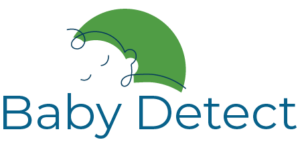A blood test at birth to detect rare diseases
Detecting a rare disease before it has a chance to have an adverse effect on human health is the dream of many doctors. While we’re at it, if screening can take place right after birth, even better. That’s why neonatal screening is so useful. A team at the University Hospital of Liège has been working on this for several years through the Baby Detect project.
Thanks to targeted DNA sequencing, Baby Detect can screen for 165 rare pediatric diseases for which treatment or care is available. This process enables serious pathologies to be detected at an early stage, paving the way for rapid treatment which often has a decisive impact on the health of the children concerned.
The Baby Detect study has already tested 4,000 newborns, with a major parental acceptance rate of 90%. This strong uptake demonstrates the awareness and importance attached to neonatal screening by families. Based on a simple blood test, the test uses three extra drops than are normally taken in the Guthrie test. The aim is to identify potentially pathogenic genetic mutations and treat them as quickly as possible.
Date & Time
Type of program
Journalist
Guests
Partners
Avec le soutien de :


